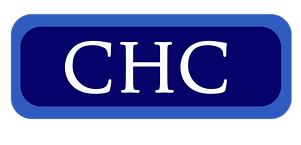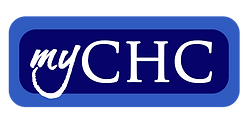The Council for Homeopathic Certification (CHC) considers the following principles to be guides to the ethical practice of homeopathy and to be morally binding on all homeopaths. Homeopathic practitioners are hereinafter referred to as practitioners.
All practitioners who are certified by the CHC are expected to observe the highest standards of ethics and integrity and be morally bound by this code of professional ethics.
Ideals
The homeopath’s high and only calling is to restore the sick to health—to heal, as it is termed—as defined by Samuel Hahnemann in the Organon.
The practitioner shall be educated and trained to provide competent homeopathic care in partnership with the client. The practitioner shall limit his or her practice to those areas in which the practitioner has acquired competence within the scope of practice of the practitioner’s certification.
Interactions with Clients
Conduct the homeopathic practice with vigilance, integrity, and freedom from prejudice, and treat all clients with respect and dignity.
Make every appropriate effort to be available and accessible to ill clients requiring assistance. Never guarantee a cure, by spoken word or in writing.
Assist clients in weighing the possible benefits and risks of other (non-homeopathic) therapeutic options, helping them to consider conventional diagnostic procedures, routine screening tests and therapies—acknowledging the usefulness of such procedures at appropriate times, even for those who may wish to avoid conventional treatment. A non-licensed homeopathic practitioner shall not make a recommendation to discontinue current medications or treatments prescribed by a licensed health care practitioner. While the practitioner may freely educate his/her client concerning how homeopathic and pharmaceutical and other approaches diverge and even conflict, he/she must also leave no doubt that any and all responsibility for modification of the client’s medication regime rests entirely with the client in consultation with the prescribing health care practitioner. The homeopath should ensure that any substantive discussions regarding prescribed medications and treatments are appropriately documented in the client’s chart notes.
Render assistance to clients in emergency situations, to the greatest extent permitted by training and circumstances.
Practice within areas of competence. Consult with colleagues, or refer clients to other practitioners, in any situation involving conflict, inadequate training, or personal limitation—such as, but not limited to, any of the following:
- When any aspect of the client’s case requires greater experience, training or skill than the practitioner can offer.
- When there is a need for diagnostic tests or procedures beyond the capacity of the practitioner.
- When the practitioner’s care is not providing reasonable and timely resolution of the client’s health problems.
- When circumstances arise that create a conflict between the practitioner’s personal and professional relationship with the client.
- If a practitioner’s competence or judgment is impaired by physical or mental incapacity or chemical dependency.
- Practitioners seeking second opinions or another Practitioner’s advice remain responsible for services and recommendations provided to the client.
Keep full and accurate records of all contacts with clients, including individual data such as name, address, phone number, date of birth and case data, such as medical history, dates and details of consultations, and summary of recommendations made.
Exercise appropriate discretion in the wording of any advertisements; practitioners who are not medically licensed with authority to diagnose and treat in the state/province where they practice should carefully avoid any reference to medical diagnoses or diagnostic tests and focus on establishment of health rather than resolution of disease.
Unless you possess a healthcare license, use a disclosure/informed consent form which clearly and accurately identifies your training, credentials, skills and nature of yourwork; ensure that each client signs this form which becomes a part of the client documentation.
The practitioner’s staff shall be trained and educated in their duties regarding client confidentiality.
The practitioner may have in attendance in the consultation room a person who is not on the practitioner’s staff, e.g., an intern, a visiting consultant or a student observer only with the consent of the client after the client has been fully informed of who the person is.
The practitioner shall also ensure that the visitor is fully informed of the duty of confidentiality concerning the identity of the client and any recommendations made during the course of the consultation.
Before entering into a relationship with a new client, the practitioner shall fully explain to the client, in writing, the fees expected for service and any payment policies, including when payment is expected, interest, if any, that will be charged for delayed payment and credit card possibilities. If the practitioner’s fees change during the course of consultation, the practitioner or his or her office staff shall advise the client of that fact before rendering service under the new fee schedule.
In the course of consultation, the practitioner should make every effort within reason to respond to a client’s attempts to contact the practitioner whether by calls or emails. If the practitioner decides to end the relationship with the client, he/she should notify the client as soon as possible.
The practitioner shall not discriminate in hiring staff or in accepting clients on the basis of race, religion, national origin, gender or sexual orientation and should always strive to provide the highest quality of care for each client. This rule does not prevent the practitioner from refusing to accept a client with whom the practitioner cannot communicate because of language differences. Also, practitioners may restrict their practice to specific age, gender groups or to specific conditions as long as this is consistent and not arbitrarily applied.
The practitioner shall not enter into romantic or sexual relations, of any type, with a client or a client’s family member or “significant other” while the practitioner-client relationship continues. This rule applies for six months after the client-practitioner relationship has ended.
The practitioner shall engage a lifestyle of self-care that optimizes his or her ability to care for his or her clients. The practitioner will not practice under the influence of prescription medication, over-the-counter medication, alcohol, drugs or any other substances that can have the potential to impair his or her functioning.
Should the practitioner become impaired, physically or mentally, so as to threaten the safety of his or her clients, he or she shall terminate practice and notify the CHC within 30 days.
Interactions in Telehealth
Telehealth occurs when practitioners provide homeopathy services remotely by means of telecommunications technology.
Practitioners should obtain agreement or consent from their clients before providing telehealth services. Informed Consent requires that practitioners should fully explain to clients the distinctive features of telehealth consultations including, but not limited to, the following:
- How telehealth works
- How to schedule appointments
- How the practitioner and client will identify each other
- Privacy concerns
- Possible technological failures and potential confidentiality breaches
- Protocols during virtual visits
- Practitioners should ensure necessary measures to accomplish the following:
- Processing sensitive data in a secure manner
- Maintaining data security and confidentiality
- Maintaining privacy
- Responding to security threats or breaches
Practitioners should follow all applicable federal and state laws, rules and regulations in regard to telehealth practice.
Practitioners should exercise professional autonomy in determining whether telehealth, instead of face-to-face consultation, is appropriate.
Interactions within the Profession
Honor the homeopathic profession, its history and traditions. Each practitioner’s words and actions reflect upon the profession as a whole. Speak respectfully, whether in public or with clients, about fellow practitioners, both homeopathic and in other fields, acknowledging differences in styles of practice and training in a constructive way.
Continue personal and professional development by undertaking further study, conferring with colleagues seeking greater understanding of homeopathic theory and practice and supporting other practitioners in that goal. Promote the art and science of homeopathy through appropriate research.
The practitioner, within the limitations of his or her ability and interest, should strive to aid in the compilation of clinical data in a meaningful manner and in the dissemination of that data.
If conducting homeopathic research, give substances used in provings only to those individuals who have an understanding of the nature of the proving process and who have volunteered, with written consent, to participate. Consider any person involved in experimental provings or other studies to be the researcher’s client; be guided by the welfare of each person and the moral imperative that the homeopath’s only calling is to help make sick people well. Report research findings and clinical experience methodically, honestly and without distortion. Identify any speculative theories clearly as such.
Carefully honor the confidentiality of all clients whose cases are used in published articles, case conference presentations or training lectures.
When requested by a relevant disciplinary authority concerning another practitioner or by another practitioner under investigation or charge, the practitioner shall cooperate honestly and to the best of his or her ability.
Interactions during Emergency Situations
An emergency situation includes any of the following experiences in the location of the practitioner’s practice that disrupts normal manner of practice: epidemics, pandemics, natural disasters, martial law or other force majeure circumstances.
Responsible Awareness Specific to Emergency Situations
Each practitioner will make every reasonable effort to seek out and be fully informed of all public health directives issued by federal, state/province, county and municipal authorities during an emergency situation. Practitioners will make every reasonable effort to educate his/her clients about all applicable public health directives.
Appropriate Communication
Each practitioner will carefully ensure that he/she communicates accurately and responsibly to clients, the public and the homeopathic community. All applicable federal, state/province, county and municipal guidelines regarding statements about prevention or treatment of any condition using homeopathy will be carefully followed in all written, electronic or verbal communication to clients, public and colleagues.
Medicolegal Prudence
Each practitioner acknowledges that under emergency situations, clients may present unfamiliar or unknown pathology. Each practitioner will cooperate with and educate clients about mandatory disease reporting requirements during any epidemic or pandemic including how to report to the designated authorities.
Needful Selfcare
The specific nature of the emergency situation will require appropriate selfcare. Each practitioner will make every reasonable effort to seek out, be fully informed and implement the following:
- Recommended public health guidelines for cleaning, disinfection and disposal protocols appropriate for his/her specific office environment (if providing onsite homeopathic care for clients who might have been exposed to or contracted a communicable disease).
- Use of appropriate personal protective precautions commensurate with the assessed level of risk for his/her specific office environment in order to minimize personal risk of exposure to infection and further transmission of a disease.

